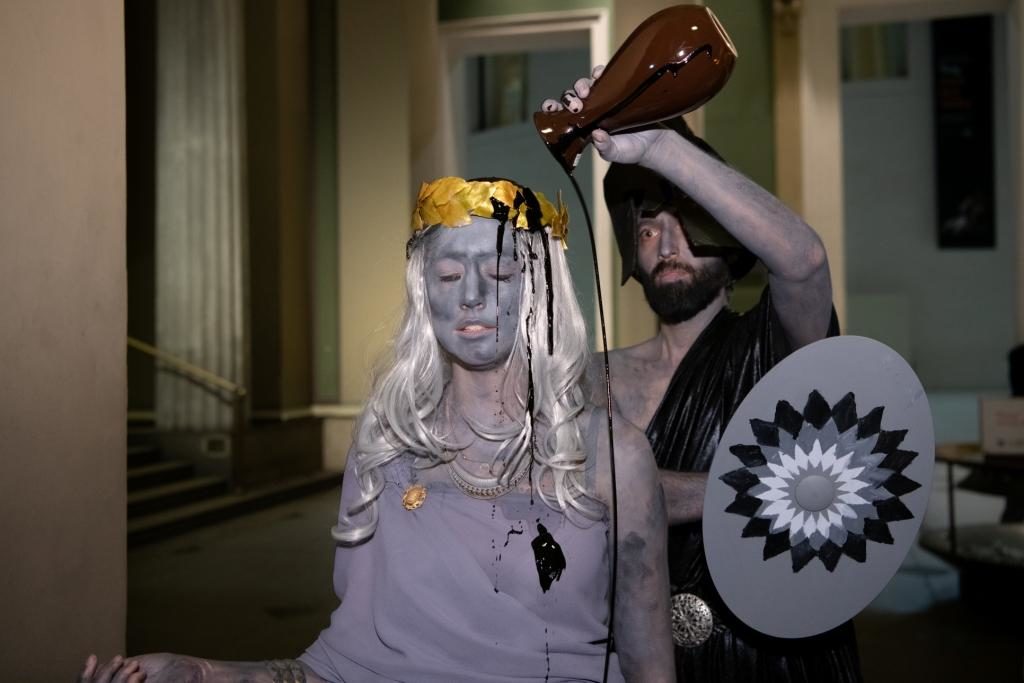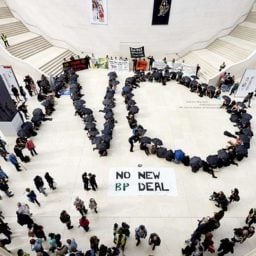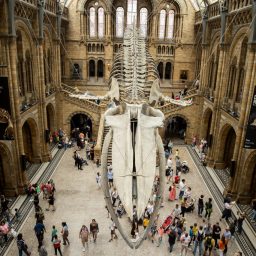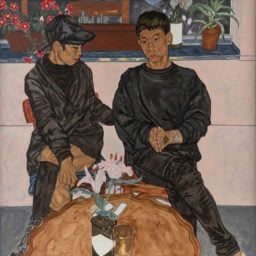Activists gatecrashed the glitzy opening party of the British Museum’s latest exhibition sponsored by the oil company BP.
Members of the organization BP or Not BP? have staged dramatic protests during the museum’s previous BP sponsored shows but last night, November 19, it was the turn of its trustees and invited guests to meet the demonstrators face to face. Activist performers were dressed as a Greek gods and mythological characters who formed Greek chorus as VIPs gathered for their exclusive preview of the exhibition “Troy: Myth and Reality.”
The ever creative activists invented a Greek-style god, Petroleus, who wore an oil stained robe set off with a BP logo. The group marched to the main entrance of the museum as guests arrived, where “Petroleus” covered the other characters in oil to the soundtrack of a Greek chorus chanting “We foresee the fall of BP!”
“BP’s sponsorship of the British Museum is, ironically, just like the famous Trojan Horse highlighted in the exhibition,” one of the performers, Sophie McIntosh, says in a statement. “The company sponsors the museum in order to look like a generous gift-giver that cares about culture but, in reality, it’s a cynical attempt to deflect attention from something far more sinister.”
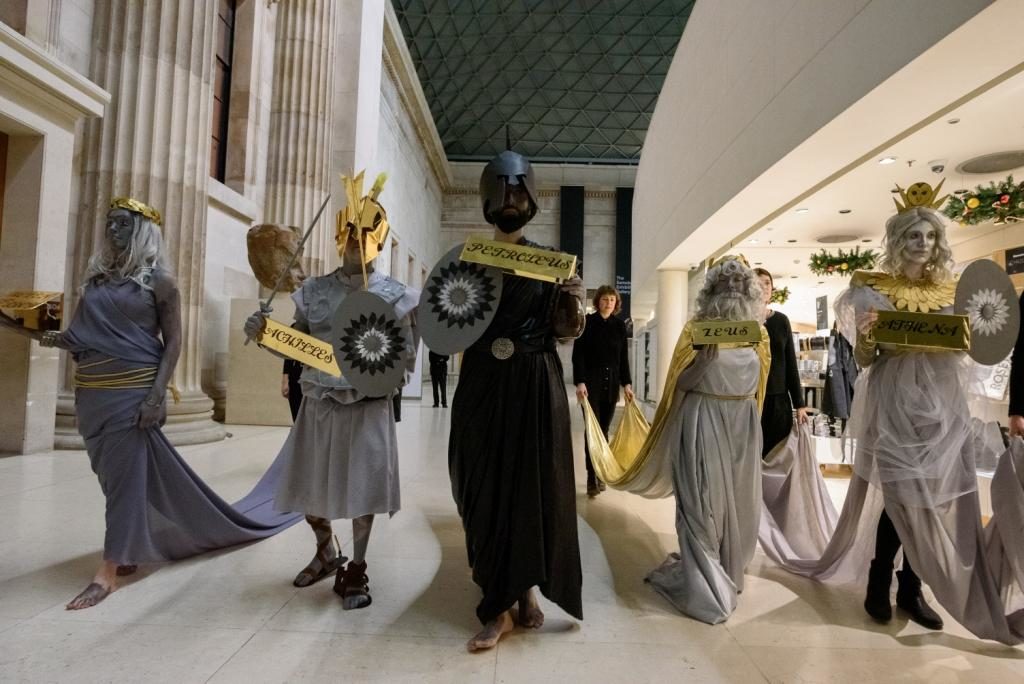
Activists from BP or Not BP? protest at the British Museum. Photo by Ron Fassbender.
The activist group is not the first to voice opposition to the exhibition. One of the artists included in the show, the Syrian actor Reem Alsayyah, penned an open letter to the museum trustees and the its director Hartwig Fischer on Monday protesting at BP’s sponsorship of the exhibition.
Alsayyah and the director of the film she appears in, Zoe Lafferty, wrote that it was a “devastating blow” to discover their work was being used to “art wash” BP’s reputation. They also pointed out the irony that the company, which backed the second Gulf War, had indirectly profited from the displacement of people, such as the 13 refugees who form the cast of their film.
Last night, Lafferty confronted one of the museum trustees, the broadcaster Muriel Gray, over her complicity in the institution’s ongoing partnership with the energy company. “Can I describe to you how difficult it is being on two sides at the same time?” an emotional Gray is heard telling Lafferty in a video of the encounter posted on Twitter. Gray is approaching the end of her four-year stint as a trustee. In the summer, another trustee, the writer Ahdaf Soueif, resigned from the board, citing the partnership with BP as one of her reasons.
A spokeswoman for the British Museum tells Artnet News that it “respects other people’s right to express their views and allows peaceful protest onsite at the museum as long as there is no risk to the collection, staff or visitors.” She added that the VIP reception went ahead as planned, and guests were able to enjoy the exhibition.
Asked why the group chose to target the VIP event rather than its public opening of the exhibition, group member Danny Chivers tells Artnet News that private views are “one of the key benefits” BP gets from the sponsorship deal. “The oil company gets to throw a party in the British Museum, giving it exclusive access to cultural and political elites—and helping it to strike new oil deals,” Chivers says. He adds that representatives of the company have schmoozed with government officials from Egypt and Russia at previous events. Chivers asks: “Why is a publicly-funded museum helping a fossil fuel giant to cosy up to repressive governments, and gain access to new oil and gas in the middle of a climate crisis?”
The latest protest at the British Museum took place as more UK cultural institutions are distancing themselves from the oil company. Last month, the Royal Shakespeare Company announced it would be ending its sponsorship deal with the company, and last week, the National Galleries of Scotland announced that it would not host the BP Portrait Award organized by the National Portrait Gallery in London.
“Other cultural institutions are ending their fossil fuel partnerships. If these institutions can step away from the oil industry, there’s no reason why the British Museum can’t do the same,” Chivers says. He points out that BP provides less than 0.5% of the British Museum’s annual income.
The activist group plans to return to the British Museum with another high-profile demonstration. They have a crowdfunded to create a Trojan Horse. It is due to arrive at the museum in February 2020 at the head of a mass performance.
